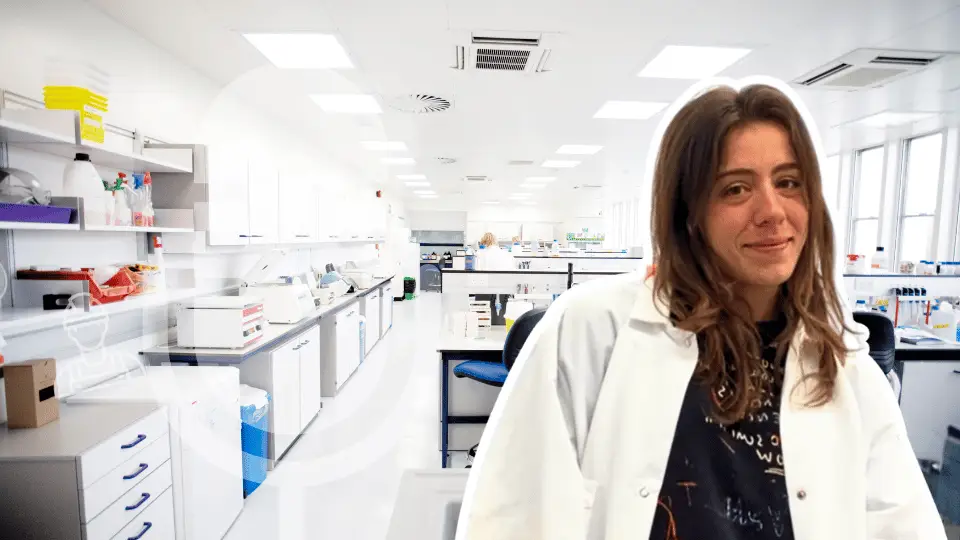What is it like to work in the fascinating world of biotechnology?
22 Nov, 20239:20Biotechnology, the process of merging biological research with technological solutions, is a...

Biotechnology, the process of merging biological research with technological solutions, is a scientific discipline employed in medical and environmental industries. It improves processes in these industries, including furthering medical research and treatments, curing, and preventing disease, and enhancing fuel and food quality. The typical biotech scientist works in scientific research, using modern technology and data to solve problems. It takes many years of study and effort to enter the biotech industry, but for the right person, the rewards are abundant.
A typical day working in a biotech role
For scientists who revel in research, biotech offers an ideal environment. The ability to devote oneself to scientific inquiry without the constraints of grant funding and teaching responsibilities is a significant allure of working in biotech.
Moreover, the fast-paced nature of biotech ensures that no two days are the same. As scientists explore new frontiers, each project presents exciting challenges and opportunities for intellectual growth. The constant pursuit of innovation and the drive to push boundaries make working in biotech intellectually stimulating and fulfilling.
A biotechnician will typically spend their day;
- Planning and initiating new research experiments and tests
- Checking ongoing research and tests
- Reporting and documenting results and data
- Attending meetings and conference calls with their team, supervisors, other teams, and external stakeholders.
Other tasks include;
- Checking and testing equipment, reporting any faults to engineers or support teams
- Checking and replying to emails
- Reading and researching data relevant to current research
- Reviewing project plans and ensuring data is up to date
- Adapting research based on the results of previous experiments
- Attending ongoing face-to-face meetings to discuss progress and developments
- Presenting findings and updating stakeholders on research progress.
In addition, different companies will have different requirements. Larger pharmaceutical and biotechnology companies will have larger, more specialized teams, while smaller companies and startups have teams that work in multiple areas at once. Different hierarchies in companies also means the level of responsibility in each employee can be different too.
Day in the Life of a Biomedical Engineer | Working on Medical Devices, Saloni Verma, Biomedical Engineer (Source - Saloni Verma/Crazy Medusa, Youtube)
Pros of working in biotech
Making a Difference
One of the most rewarding aspects of working in biotech is the sense of purpose and the opportunity to contribute to something greater than oneself. The desire to make a meaningful impact is deeply ingrained in the biotech industry, attracting individuals passionate about finding innovative solutions to complex challenges.
Whether you are involved in groundbreaking research, drug development, or administrative roles, every job within the biotech sector contributes to the greater good. The opportunity to work on life-saving treatments and witness the impact of scientific discoveries in real-life applications is a driving force for many biotech professionals.
Financial Perks
Another advantage of working in the biotech industry is the potential for financial stability and attractive compensation packages. Biotech companies often offer competitive salaries, high wages, and excellent employee benefits. In addition, some biotech companies provide stock options, allowing employees to share in the company's success and potentially benefit financially from its growth. This financial stability and potential for development make biotech an appealing career choice for many individuals.
Opportunities for Advancement
The biotech industry is constantly evolving and expanding, creating numerous opportunities for career advancement. As a biotech professional, you can grow and develop your skills, taking on new challenges and responsibilities. The industry offers various career paths, including research and development, clinical trials, regulatory affairs, sales and marketing, and management. With the right experience and educational background, you can climb the ladder of success and achieve higher positions within the industry.
Focus on Teamwork
Collaboration and teamwork are integral parts of the biotech industry. Working in a team environment allows biotech professionals to leverage the expertise of colleagues from various disciplines, fostering innovation and creativity. Whether you're part of a research team, a development team, or a commercialization team, you'll have the opportunity to collaborate with like-minded individuals who share your passion for science and making a difference. This teamwork enhances the quality of work and provides a supportive and dynamic work environment.
Cons of Working in Biotech
Job Security
While the biotech industry offers exciting opportunities, it's important to consider the potential for job insecurity. Biotech companies heavily rely on technology and innovation, and if a company fails to keep up with advancements or faces financial challenges, it may struggle to survive. The nature of the industry means that some projects may be terminated, leading to layoffs or job uncertainties. Biotech professionals must stay updated with the industry's trends and adapt to changes to ensure long-term career stability.
Emphasis on Deadlines
Working in the biotech industry often involves working under strict deadlines. The industry operates on tight schedules, whether developing new drugs, conducting clinical trials, or meeting regulatory requirements. This can create a high-pressure work environment with limited time for experimentation and research. Biotech professionals must be able to work efficiently and effectively within these time constraints, juggling multiple tasks and responsibilities.
Less Autonomy
In the biotech industry, individual autonomy may be limited. Strict regulations, quality control processes, and the necessity to collaborate with multidisciplinary teams can restrict the freedom to work independently. Biotech professionals must adhere to regulatory guidelines and standard operating procedures, leaving little room for personal judgment or decision-making. This lack of autonomy may not be suitable for individuals who prefer more independent work styles.
Extensive Travel
Some biotech jobs may require extensive travel, which can be physically and emotionally demanding. Travelling for conferences, meetings, or fieldwork may disrupt work-life balance and strain personal relationships. It's essential for individuals considering a career in biotech to evaluate their willingness to travel and the potential impact it may have on their personal lives.
Additional Considerations When Seeking a Biotech job
A career in biotech is a great choice for someone who is interested in personal development in science, a passion for helping people, and the opportunity to work on many different projects, especially if the positives outweigh the negatives. In addition to the pros and cons mentioned above though, there are a few other factors to consider when pursuing a career in biotech.
Education and Experience
A solid educational background in molecular biology or related fields is essential to excel in the biotech industry. Pursuing a graduate degree or obtaining specialized certifications can enhance your knowledge and increase your chances of securing desirable positions. Additionally, gaining relevant work experience through internships, research projects, or industry placements can give you a competitive edge in the job market.
Networking and Professional Development
Building a strong professional network is crucial for success in the biotech industry. Attending conferences, joining industry associations, and participating in networking events can help you connect with professionals and stay updated with the latest trends. Investing in continuous professional development by attending workshops, seminars, and online courses can enhance your skills and broaden your knowledge base.
Industry Trends and Market Demand
Staying informed about industry trends and market demand is vital for career growth in biotech. Keeping up with technological advancements, understanding regulatory changes, and identifying emerging areas of research and development can help you align your skills and expertise with industry demands.
Conclusion – Moving Forward with your Biotechnology Career
Choosing a career in the biotech industry offers a unique opportunity to contribute to scientific advancements and positively impact society. While there are challenges to consider, such as job security and tight deadlines, the financial perks, opportunities for improvement, and focus on teamwork make the biotech industry an attractive choice for many individuals. You can thrive in this dynamic and rewarding field by staying informed, continuously developing your skills, and adapting to industry changes.
NES Fircroft’s expert recruitment teams recruit engineering and technical professionals for global roles with some of the biggest names in the pharmaceutical industry.
If you’re looking to take the next steps in your life sciences career, you can view all our open vacancies or register your CV with us today for free to ensure that you’re first in line for future jobs in this expanding industry.










